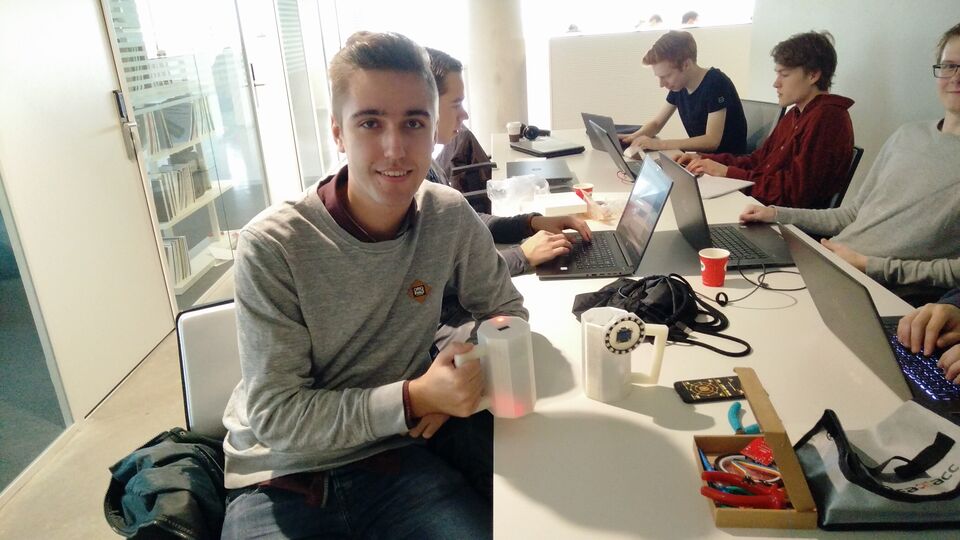Flux as living lab for Internet of Things
Bachelor's students at TU/e cannot find appropriate courses concerning one of the hottest technology innovation - the Internet of Things (IoT). This is the opinion of George Exarchakos, Assistant Professor at Electrical Engineering. He organized an IoT pilot course as an elective for second-year students. The practical assignment was carried out Thursday. Twenty students played Pac -Man in the flesh in Flux, with their own self-made controllers.
“The exchange of data between vehicles, buildings or objects with the aid of embedded electronics, software and sensors is gaining ground. As yet TU/e has no hands-on education in this area, with the exception of a Master's course at Mathematics and Computer Science,” says Assistant Professor George Exarchakos. “And yet industry is already voicing a demand.” Together with Associate Professor Oded Raz, he designed the IoT elective for Bachelor's students.
The emphasis is not on lectures but on a practical assignment. This is why an infrastructure comprising 25 nodes has been installed on the ninth floor of Flux. This enables twenty students to test their IoT devices. The assignment was to build a controller that connects to the server, to process the data received back, and to feed this back to the application. In addition, a good design and a business plan were required.
Pacman
With his group, EE student Arthur Timmermans (see photograph) built two controllers in the form of a beer mug. As the presentation was held in a room on the tenth floor, a video link was useful for the demonstrations. Beer mug in hand, a student walked to the places where there was 'something to eat' and away from places where the enemy was lurking. He could see that from various colored LEDs in the beer mug. “It was really fun to apply what we had learned in practice.”
“Next year we want to offer this course to over a hundred students. But to do that we will need a larger space. If we were to set up four floors in Flux, we could manage it. But having so many students walking around with their applications might disturb employees and other students. That is why it would be much better to carry out the project in TU/e innovation Space,” says Exarchakos.
The pilot was mostly guided by employees from EE but was also supported by members of Computer Science and Industrial Engineering & Innovation Sciences faculties. As far as Exarchakos is concerned, more study programs will be involved in future. The most promising designs will be on show at the -Data Science Summit 2017.


Discussion